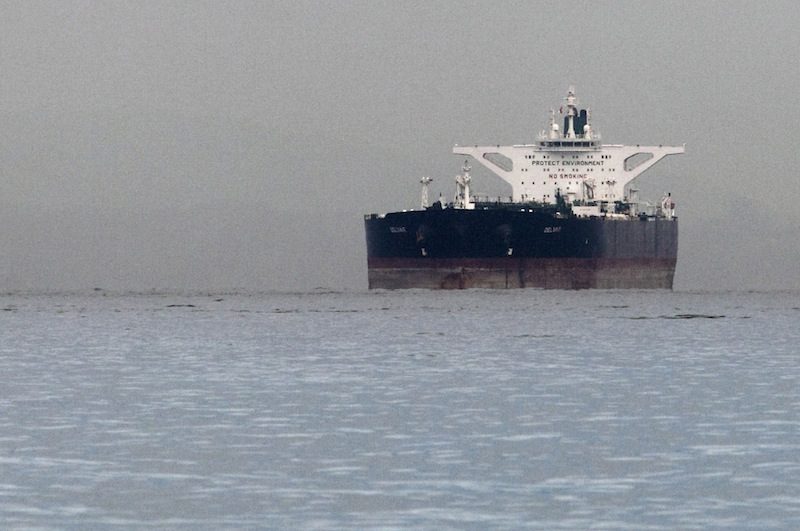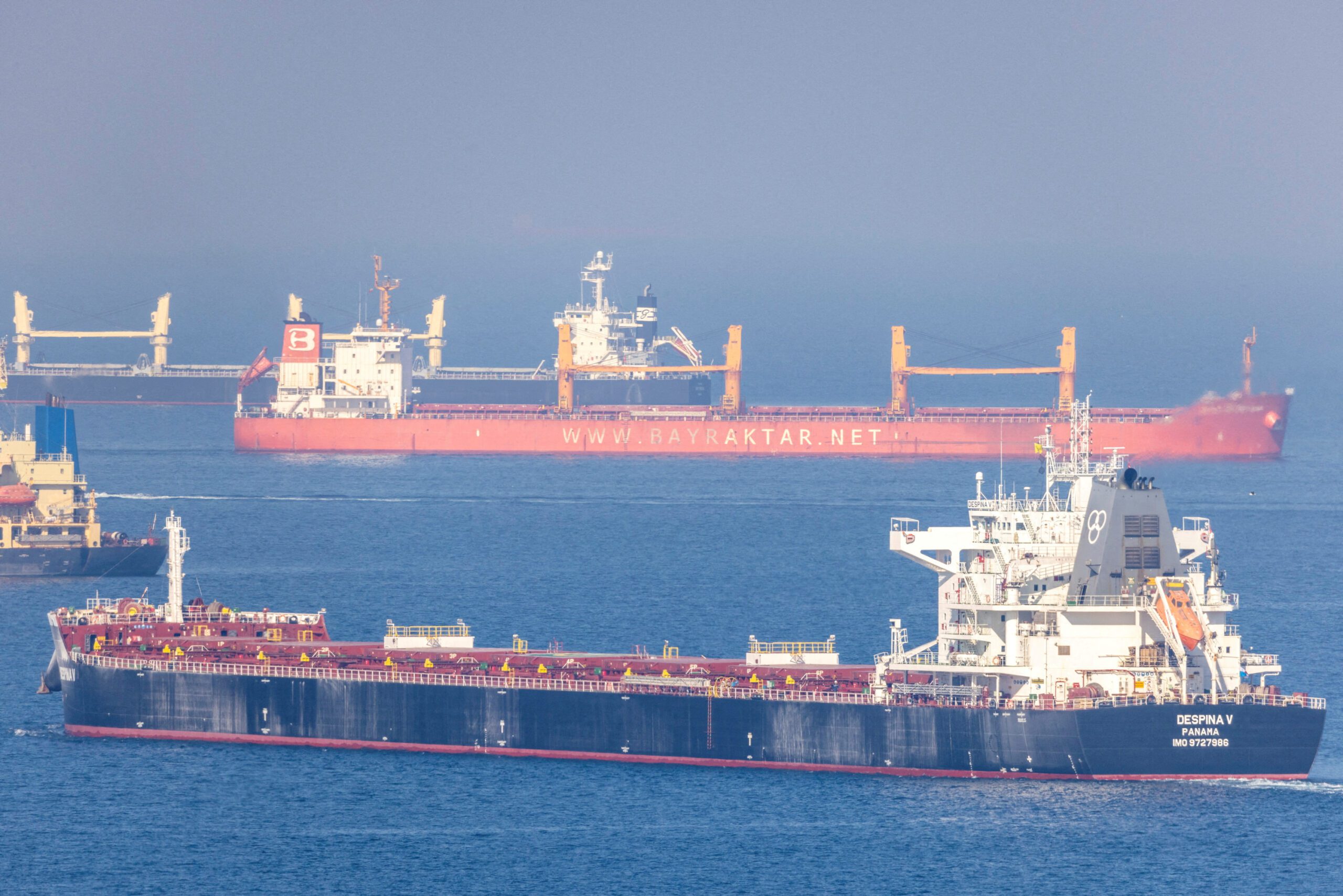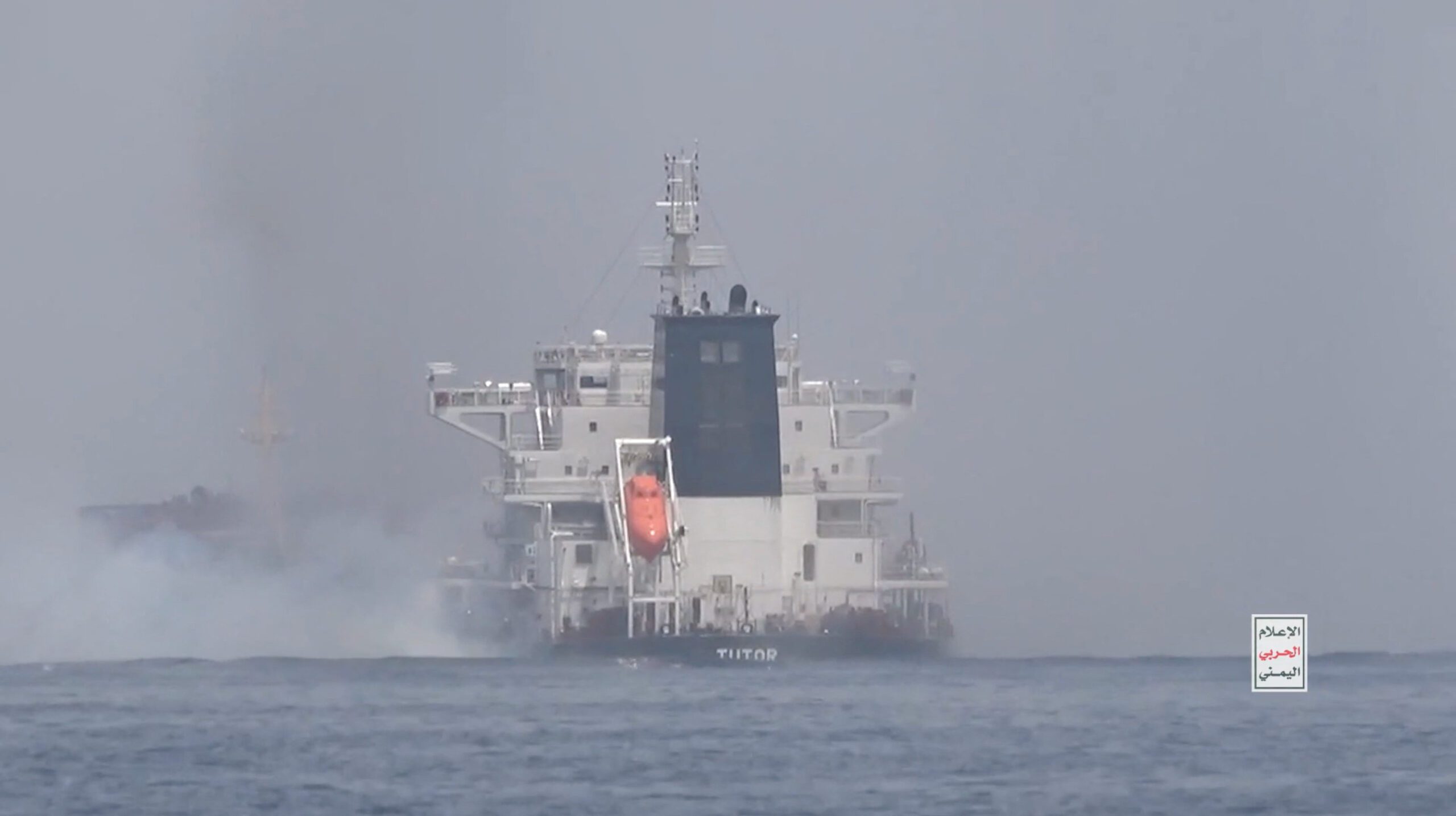Sanctions by the US Treasury are quietly turning up the heat on Russia’s oil exports — to the point where they may soon be at risk of curtailment, writes Bloomberg oil strategist Julian Lee.
By Julian Lee (Bloomberg) —
Since the Treasury first started designating individual tankers back in October, a total of 40 vessels have been identified. Of those, 14 were named on Feb. 23 and the rest before then. A handful of ships are also stuck with Russia’s Sokol crude grade on board.
Tracking these vessels one by one reveals that, of those named before the most recent round of designations, almost all of them have failed to load cargo since being added to the list. And when Friday’s measures were imposed, one performed a mid-ocean U-turn and another appeared to abandon a cargo transfer that it was engaged in.
In addition to the ships, a phalanx of significant traders and shipping firms — not least the state-owned tanker giant Sovcomflot and entities related to it — have been targeted.
As well as stopping the ships from doing what they were doing, the measures come with a psychological impact. Oil refineries in India are becoming increasingly wary of touching Russian barrels because of mounting sanctions pressure.
Any buyer dealing with Russia today needs to keep in mind that Trader X, Y or Z’s name is not somewhere in the paperwork to ensure they’re not inadvertently caught up in a sanctioned cargo.
And there can also be no certainty about which ship or shipping company the US Treasury might target next.
Despite all this, it’s hard to be certain what the impact is right now. Certainly overall exports are holding up.
Yes, it’s true that prices of Russian oil are deeply discounted at the point when the barrels leave Russia. However, by the time the barrels arrive in Asia, the price has risen closer to that of the international benchmark Brent.
That might be because the sanctions are genuinely inflating shipping costs, but it’s hard to be certain because the tanker companies and traders involved in the trade are so often unknown.
So far, the sanctions applied have pertained to breaches of a price cap.
The US Treasury has asserted that Group of Seven services were provided for cargoes that cost more than $60 a barrel — thereby breaking the rules.
There are still plenty more ships that the US and its allies can go after for such breaches, intensifying the pressure on Moscow to find suitable tankers for its needs.
But a wider question lurks in the background: will the western regulators target a fleet of vessels that doesn’t use G-7 service providers at all?
Remember, these ships, somtimes part of what is known as a shadow fleet, are going a long way to helping Russia deliver its barrels and fill its war chest. They can have substandard insurance if they have insurance at all, their ownership details are often a mystery, and there are concerns about their safety and environmental credentials.
And they aren’t impeded by the need to use western services or under the threat of sanctions for doing so.
What if the Treasury were to sanction a ship that had no Western nexus at all? Say a carrier with a poor environmental profile that was helping Russia to deliver its barrels.
No Surprise
The fact is, sanctions have now been shown to disrupt the tankers that would otherwise deliver Russian oil, and there are plenty more that can be added to the list.
If more and more are taken out of the market, Russia may start struggle to find all the ships it needs. It could even affect the wider freight market.
At that point, it would be no surprise to see the flow of crude start to ebb, something that would mark a far bolder approach from the US Treasury than has been the case up to now.
Disruption to crude supply is something the US Treasury has said it will seek to avoid. But that doesn’t mean it can’t test the limits of its powers — and their influence on the market.
NOTE: Julian Lee is an oil strategist who writes for Bloomberg. The observations he makes are his own and are not intended as investment advice.
© 2024 Bloomberg L.P.
Unlock Exclusive Insights Today!
Join the gCaptain Club for curated content, insider opinions, and vibrant community discussions.

 Join The Club
Join The Club













